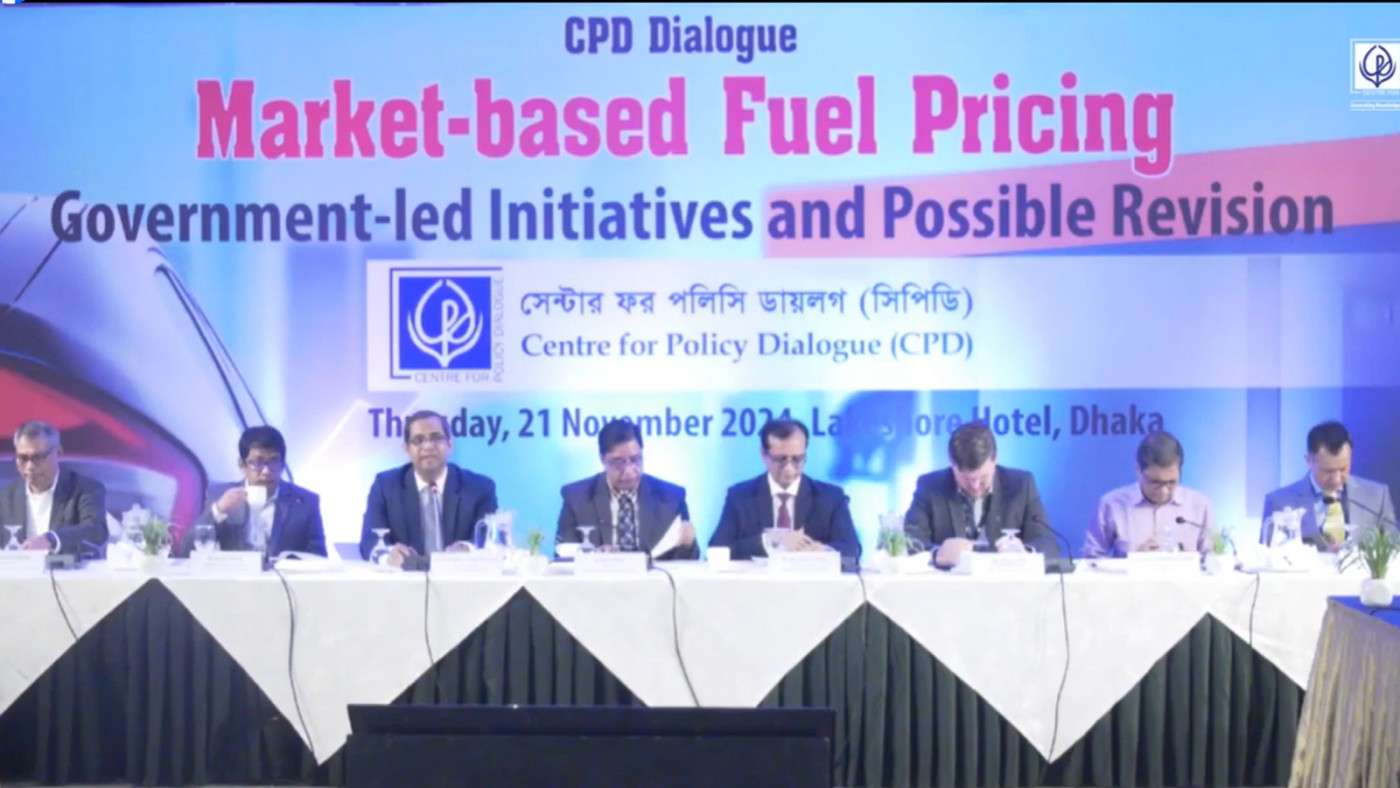‘Fuel price reform may cut Tk11 for petrol, Tk10 for diesel’, CPD says

The Center for Policy Dialogue (CPD) on Thursday said if the pricing structure is reformed, diesel prices could be reduced by Tk 10.50 and petrol prices by Tk 11.32.
The CPD shared the insight during a dialogue titled ‘Market-based fuel pricing: government-led initiatives and possible revisions,’ held at a hotel in the capital city of Dhaka on Thursday.
At the event, CPD research associate Helen Mashiyat Preoty and programme associate Faisal Qayyum presented the keynote.
According to the CPD, aligning fuel prices with market and international standards could reduce the price of diesel by Tk10.50, kerosene by Tk8.10, petrol by Tk11.32, and furnace oil by Tk0.71.
Speaking at the event, CPD Research Director Dr Khondaker Golam Moazzem noted that ongoing reforms in various sectors are also impacting the energy sector.
"Fuel prices should be set in a way that prioritises consumer interests. The Bangladesh Petroleum Corporation (BPC) currently earns substantial profits without needing subsidies. Adjusting these profits could benefit consumers and positively influence electricity costs," he said.
The CPD recommended empowering the Bangladesh Energy Regulatory Commission (BERC) with the responsibility and authority to set fuel prices or establish a legal framework to develop a better pricing model.
They suggested that the BERC should incorporate consumers' input through public hearings and expedite the implementation of a comprehensive pricing policy.
At the dialogue, the CPD emphasised that competitive pricing must prioritise consumers' interests, ensuring fuel prices remain affordable. If price hikes occur due to currency depreciation, adjustments can be made later to address the impact.
The keynote highlighted that the Bangladesh Petroleum Corporation (BPC) lacks transparency regarding the model or legal basis used to determine fuel prices, leaving consumers dissatisfied.
The CPD stated that since 2015, the BPC has not required subsidies, as it generates significant profits, with fuel prices offsetting any operational losses.




